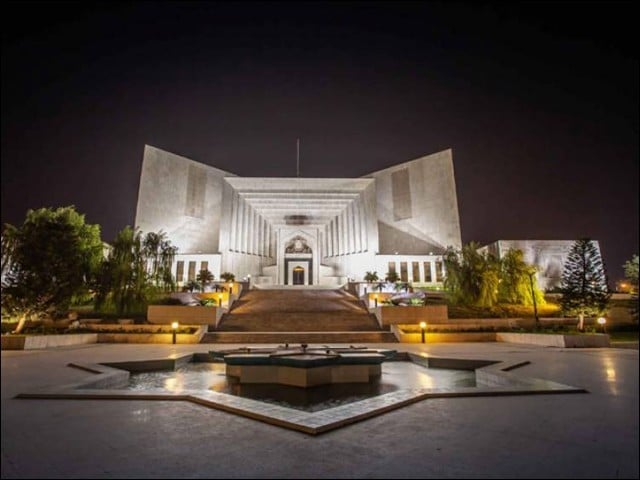SC order on practice law ‘unconstitutional’
Govt tells full court SC Practice and Procedure Act can’t be declared void on basis of presumption

The PML-N on Thursday contended that that the April 13 interim order staying the Supreme Court Practice and Procedure Act 2023 is 'quite unique in jurisprudence’.
Submitting a reply through Salahuddin Ahmed advocate, the party prayed that the Supreme Court (Practice and Procedure) Act, 2023 -- a law that curtailed the unbridled powers of the chief justice of Pakistan -- be declared “impermissible use of judicial power which amounts, in all humility, to a premature display of disrespect to the will of the chosen representatives of the people".
The PML-N contended that the Supreme Court (Practice and Procedure) Act 2023 [‘the 2023 Act’] is intra vires the Constitution and is good law. “As such, all the instant petitions challenging the same may be dismissed and the interim order passed by this court on April 13 may be vacated.”
In its reply the party said three questions emerge from the pleadings and arguments of the petitioners: A) Can parliament legislate on the practice and procedure of this Court and, in any event, override the provisions of the Supreme Court Rules 1980? B) Can parliament can create a right of (intra-court) appeal against orders passed by the court under Article 184 (3)? and C) whether, even assuming the above, do the provisions of the 2023 Act otherwise violate any provisions of the Constitution and, if so, which and to what extent?
The federal government argued that under Section 3 of Article 184, the aggrieved person did not have the right to appeal against a verdict, but only to seek its revision.
It added that Article 204 that pertained to the contempt of court did not provide the right to appeal.
The government maintained that parliament had enacted the legislation to provide for the right of appeal in contempt of court cases. It continued that the Supreme Court (Practice and Procedure) Act had further ensured the independence of the judiciary.
It further told the full court that that the law would bring transparency in judicial matters and democracy in bench formation.
It noted that the Supreme Court (Practice and Procedure) Act structured the discretionary powers of the CJP.
It informed the full court that according to the Supreme Court (Practice and Procedure) Act, a larger bench would hear cases under Section 3 of Article 184.
The law cannot be declared void on the basis of presumption, it added.
The reply continued that if any future legislation restricted a judiciary’s law, the court could review it.
It further contended that unlimited arbitrariness destroyed the system.
The federal government added that the law could not be invalidated on the ground that a full court decision would not have the right of appeal.
It pointed out that a full court was formed in exceptional cases.
The government maintained that it was not a settled law that the CJP would be the ‘Master of the Roster’.
It noted that the term ‘Master of Roster’ was derived from the Indian judiciary in which parliament had the power to legislate and overrule judicial decisions by legislation.
The PML-N, in its written reply, took the position that parliament should have complete power to legislate.
It added that petitions filed in the SC against laws before their enactment were neither hearable nor should orders be passed on them.
The party contended that none of the petitions stated how the independence of the judiciary was affected by the Supreme Court (Practice and Procedure) Act.
Therefore, it continued that all the petitions filed against the law should be dismissed.



















COMMENTS
Comments are moderated and generally will be posted if they are on-topic and not abusive.
For more information, please see our Comments FAQ